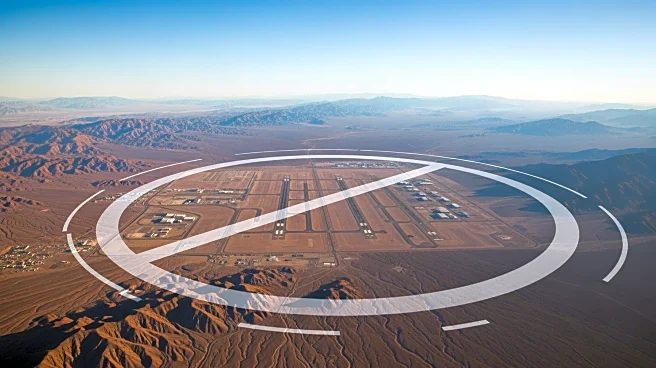Rapid Read • 8 min read
The North Atlantic Treaty Organization (NATO) was established in 1949 by the United States, Canada, and several Western European nations to provide collective security against the Soviet Union. This marked the first peacetime military alliance the United States entered outside the Western Hemisphere. The formation of NATO was a response to the geopolitical tensions following World War II, where European nations sought to rebuild their economies and ensure security against potential threats from a resurgent Germany or Soviet incursions. The United States viewed a strong, integrated Europe as crucial to preventing communist expansion, leading to the proposal of the Marshall Plan for economic aid. The Berlin Crisis of 1948 further heightened security concerns, prompting the Truman Administration to consider a European-American alliance. The Brussels Treaty of 1948 laid the groundwork for NATO, with the United States negotiating terms that balanced European security needs with U.S. constitutional constraints on war declarations.
AD
NATO's creation was pivotal in shaping post-war European security and U.S. foreign policy. It established a framework for collective defense, where an attack on one member is considered an attack on all, thereby deterring Soviet aggression. This alliance not only fortified Western Europe under the American nuclear umbrella but also facilitated military and economic integration among member states. The strategic importance of NATO was underscored during the Cold War, as it provided a unified front against Soviet expansionism. The alliance has since expanded, adapting to new security challenges and including former Soviet states, demonstrating its enduring relevance in global geopolitics.
NATO continues to evolve, addressing contemporary security threats such as terrorism and cyber warfare. The alliance's strategic concepts are regularly updated to reflect changing geopolitical dynamics, including Russia's actions in Ukraine. NATO's commitment to collective defense remains a cornerstone of its operations, with ongoing efforts to strengthen deterrence and defense capabilities. Future expansions and strategic partnerships are likely as NATO adapts to maintain stability in the Euro-Atlantic area.
NATO's role extends beyond military defense; it engages in crisis management and post-conflict stabilization, projecting its values globally. The alliance's decision-making process, based on consensus, ensures that all member countries have a voice, fostering unity and cooperation. As global security challenges evolve, NATO's adaptability and commitment to shared values will be crucial in navigating future geopolitical landscapes.
AD
More Stories You Might Enjoy











